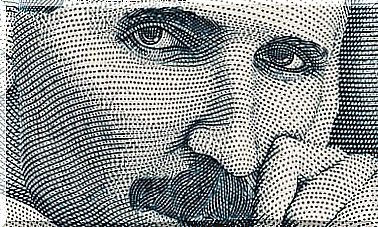Erich Fromm And Humanistic Psychoanalysis
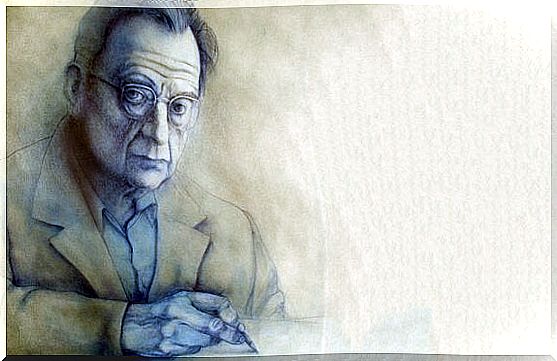
For Erich Fromm, everyone’s main goal in life is to become stronger, more free, more noble – basically the person you are meant to be. This is representative of his humanistic view, which was revolutionary for his time. Especially for such an important person in psychology.
When psychoanalytic theory is referred to, some people use to make that mistake by looking at it as a strict and specific entity consisting of clear concepts, dynamics, and approaches proposed by the father of psychoanalysis, Sigmund Freud. Perhaps they forget that into this approach, there are other types of thoughts that have enriched the basis of psychoanalysis by deviating from Freud’s words and ideas.
Erich Fromm was one of the deviants. In the 1940s, the German Jewish psychologist decided to break completely from the psychoanalytic philosophy of the Frankfurt Institute for Social Research. In doing so, he refurbished the theory and use of psychoanalysis. He led it to a more cultural, humanistic approach. For example, he replaced Freud’s idea of libido as a way of life with a more practical one that included a new understanding of assimilation and socialization.
Fromm was a very fascinating philosopher and one of the best representatives of 20th century humanism . In his three most significant books (Escape from Freedom, The Art of Loving, and The Heart of Man), he left a universe of thoughts, reflections, and theories that put psychology hand in hand with anthropology and history. He also continued the legacy of Sigmund Freud and Karen Horney.
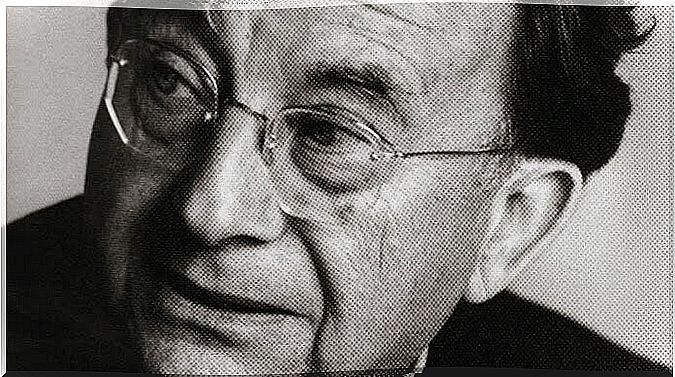
Erich Fromm and the systematic crises of Western societies
To understand Erich Fromm’s theory of humanistic psychoanalysis, it is necessary to get to know him as a person, to understand his roots, the context in which he grew up and the aggravating reality he lived in. This will shed light on things that were guidelines and inspiration for his theories.
When you read his autobiography, Beyond the Chains of Illusion , and focus on his childhood and adolescence, it’s easy to see that those were bad times. His father was an aggressive businessman, his mother struggled with chronic depression and he grew up under strict norms of Orthodox Judaism. During this time he experienced two defining events.
The first was the suicide of a 25-year-old woman he fell in love with as a child. She was a painter who was very close to her only family member: her father. He died suddenly and a few days later she took her life. Her suicide led Fromm to wonder what it is that leads people to go to such extremes.
The second defining event was the outbreak of the First World War. At this point, the shadow of nationalism, the radicalization of the masses and the message of hatred and “us against them” came into his life.
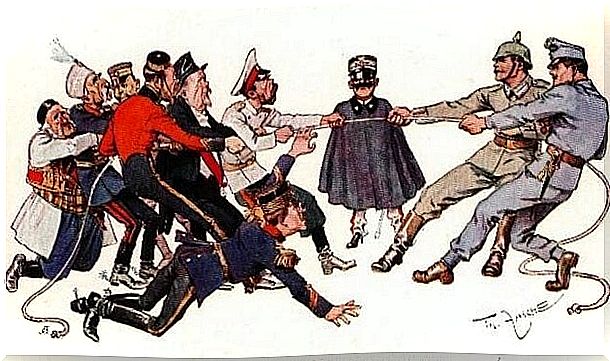
The world began to fragment and the cracks not only created insurmountable distances between different leaderships, but also ushered in a period of systemic crisis throughout Western society. All the psychological, philosophical and social theories up to this point had to be reformulated in the search for answers and explanations. Especially in the middle of such chaos.
Understanding and hope for people
It is almost imperative to read Fromm’s work in order to understand the crisis among the values, principles, and social policies that exploded in the first half of the 20th century. At that time, there were two world wars that consumed people’s faith in humanity.
Reading from Fromm’s books is in itself a way to reconcile with one’s own humanity. He talks about hope, and most importantly, he provides incredible resources from social science and psychoanalysis that can help initiate a positive and creative transformation.
Let us look at the basic principles of his theory.
From a biological-mechanistic to a biological-social view of man
Erich Fromm accepts most of Freud’s concepts, including the unconscious, oppression, defense mechanisms, transmission, the idea that dreams are an expression of the unconscious and the idea that childhood is the root of many psychological disorders.
But, one thing he could not accept was the view of humans as a biological-mechanistic entity. An organism that responds exclusively to the basic impulses of aggression, survival and reproduction.
- Erich Fromm refers to the biological social man as a way of praising “the psychology of oneself”. Where humans are not limited to responding to or defending our impulses and instincts. It is necessary to broaden our perspective. With that, we must recognize the social aspect and how the most important people of a child can cause hostile and traumatic processes in them.
- Personal relationships were the backbone of Fromm’s theory, which replaced Freud’s classical theory of libido as a motivating and mechanistic driving force in humans.

People and freedom
Fromm’s theories are not only influenced by Freud and Karen Horney. To talk about Erich Fromm is to talk about Karl Marx. Think back to the social environment; the crisis of values; lack of explanations for human behavior, war, nationalism, hatred, class division…
Freud’s biological-mechanistic perspective was useless and meaningless, and the principles defended by Marx allied more with Fromm’s principles. For Marx, people were not only influenced by society, but by their economic system.
Therefore, we can recognize ourselves in many of Fromm’s words and messages.
A very interesting part of Fromm’s theory is that even though humans are influenced by culture and economic systems, we should constantly fight to achieve a goal; freedom. In fact , Fromm encouraged people to go beyond the strict view of Freud and Marx in order to develop their own personal freedom, which is natural for humans.
Fromm believed that humans are determined by certain biological principles like all other animals. We are born into a body, we become more mature, we grow older and we fight to survive. But we are capable of so much more than what these limits prescribe. For example, if we can make progress from the traditional societies of the Middle Ages to modern societies, we can not give up in the pursuit of more freedom, more rights and better welfare.
Freedom is difficult to achieve, but to get there, individual responsibility and social respect must be cultivated. If not, we may risk:
- Tyranny
- Destruction (including aggression, violence and suicide)
- Conformity, where people become “social chameleons” and take on the colors of their surroundings without protesting or asking questions
Fromm developed these three ideas in an irreplaceable book worth reading: Escape from Freedom .
The main principles of humanistic psychoanalysis
One thing that stands out in Erich Fromm’s path is that he, in contrast to classical psychoanalysts, did not pursue a career in the medical or psychiatric field . He based his work on sociology instead of medicine and was therefore not always highly regarded. His relationship with Karen Horney was actually quite complicated and many psychologists saw him more as a field theorist than an orthodox psychologist.
But, this is where Fromm’s true greatness is seen: in his broader and more unified view of people. From his perspective, not everything was a reaction of an organic pathology or the power of biology. He believed that culture, family and society often placed limits on our way of expressing ourselves.
Continue below to see the basic principles of his theory of humanistic psychoanalysis.
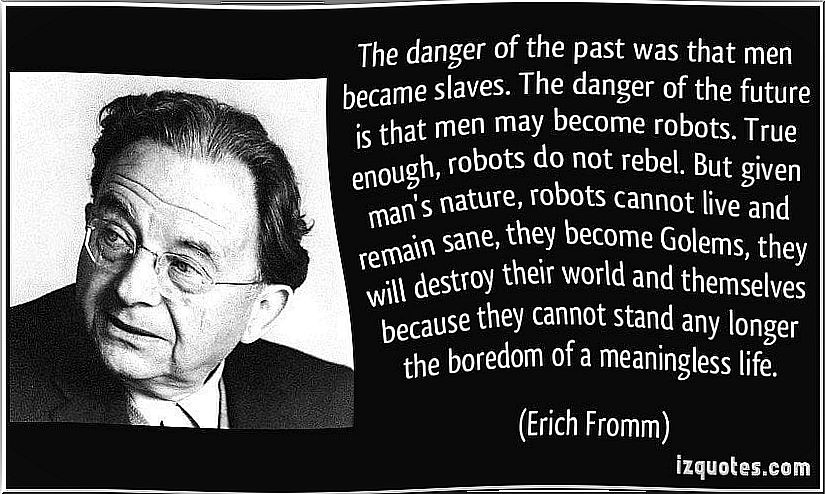
The key to understanding Erich Fromm’s psychological approach
- Fromm’s humanistic perspective contributed to a new approach to the concept of disease. According to him, psychoanalysts were obliged to reformulate not only the definition of diseases, but also the tools used to treat them.
- The professional’s goal is to simplify the patient’s self-discovery, or in more modern terminology, to promote personal development in order to achieve happiness.
- This can only be achieved by strengthening their sense of responsibility and self-love.
- When treating a patient, there is no point in focusing entirely on their pathological features, the symptoms of their disease or the negative aspects of their condition. Recognizing their positive properties will improve the therapeutic technique.
- The psychoanalyst should not just put words together to make man change. They must also help the patient to develop strategies so that they can return to society, feel stronger and understand that there are also pathological aspects of society that most people consider important.
- Psychoanalysis should be receptive to advances in science and change in society. It should understand the cultural, economic and political conditions that surround us in order to better help the patient. It is wrong to work from a reductionist point of view.
- The professionals should use clear, obvious and understandable vocabulary. In addition, they should not show a picture of power and superiority.
Fromm’s legacy involves a huge step in both psychology and philosophy. Although many people thought his theories were somewhat utopian, he introduced a more realistic form of psychoanalysis that sought to develop the best in each person. His was an important approach that is worth remembering and reading in depth. Let this article be an invitation.
References
Fromm, E. (1947) Man for himself, an inquiry into the psychology of ethics. Rinehart.
Fromm, E. (1965) Socialist humanism: an international symposium. Doubleday.
Fromm, E. (1971) The Heart of Man, its genius for good and evil. Perennial Library.
Fromm, E. (1976) To Have or to Be . Harper & Row.
Fromm, E. (1984). On Disobedience and other essays. Routledge & Kegan Paul.
Fromm, E. (2010) The Pathology of Normalcy. American Mental Health Foundation Books.
Fromm, E. & Maccoby, M. (1970) Social character in a Mexican village; a sociopsychoanalytic study. Transaction Publishers.
Morin, E. (1999) La Tête bien faite.






